When I was coaching teachers with a non-profit organization in the city during my first two years here in Indianapolis, I was a part of a team that was very into “knowing itself.” We took all sorts of assessments (never with the consultation of a professional), and spent countless hours in team meetings analyzing the data about ourselves - trying to find out how our team could work more efficiently and effectively. One such exercise was to take the Strengthsfinder assessment. We looked at our results as a team, having never seen our individual data prior to the meeting. In this meeting, I learned that four of my top five personality themes fall in the “Relationship Building” category. During that meeting, this was laughed off as not surprising. I had a reputation for being the caring person on the team. For not hiding my big feelings - I cried a lot. My performance data with my teachers leaned positive because of my teachers’ indicating that they knew I cared about them and their kids on their surveys.
There are simply some folks that are easy to read when it comes to their centers of intelligence, or the places that they primarily operate from. My preferred center of intelligence is the heart center. While this particular language is most commonly found in Enneagram literature, it shows up across a variety of disciplines. I have had several descriptors applied to me: feeler, empath, highly sensitive, etc. All of these point to the same thing. I use my feelings as my guide in life. I make decisions based on my feelings, I build relationships based on my feelings. I am often, if not always, conscious of the feelings of others (a lot of times even more than my own).
But this is only one center of intelligence. There are also the head and gut/body center. Sometimes, these folks are just as easy to spot. Thinkers, whose preferred center of intelligence is their head, spend a lot of time there. Logic and analytics can be really important to them and provide much more meaning than emotions. Body centered people use instinct to guide them. They may simply know the right thing to do. They feel it in their gut.
This doesn’t mean everyone is imbalanced, but that most people prefer one of these centers of intelligence over the others. It also doesn't mean that we don’t use or engage the other centers at all, but that it often takes intentional work to do so. While we have a dominant center of intelligence, we also have a repressed center. Knowing this information doesn’t mean that we get a pass on engaging our repressed centers. In fact, working within and from our repressed centers is an opportunity for us to work toward shalom, or wholeness, within ourselves. Just as we are always working toward the wholeness of the kin-dom of God, here and now, we are invited to work toward wholeness in our own selves. By integrating our repressed centers, we are able to see the fullness of Christ within us. The ways that our gifts and Goodness can meet the world. When we meet the world as whole people, knowing ourselves in the fullness of how we were created by God, then we are best suited to follow the Spirit and embody Christ.
As a heart centered person, my repressed center of intelligence is my head center. I am not a thinker. It doesn't mean that I don’t think. It means I, and other feelings folk, have to be intentional about our thinking. We have to make sure we are making room for our thoughts to join the conversation when we are making decisions and processing things. It means that for me to experience the fullness of God, I need to let my thinking join my feelings. I need to trust my thoughts as a guide just as valuable as my feelings that are so easily harnessed.
(By: Britney Yount)
Questions for Shared Story:
1. What does a week in your life (under regular circumstances) look like?
2. Do you see your work/what you give time to connecting to the larger story God is rewriting in the world, moving toward shalom/justice in a broad or specific sense? How so?
3. Thinking isn't your specific repressed center, but it's also not your primary intelligence center. As a person that primarily uses your body/gut center of intelligence, how do you utilize thinking to address your work?
